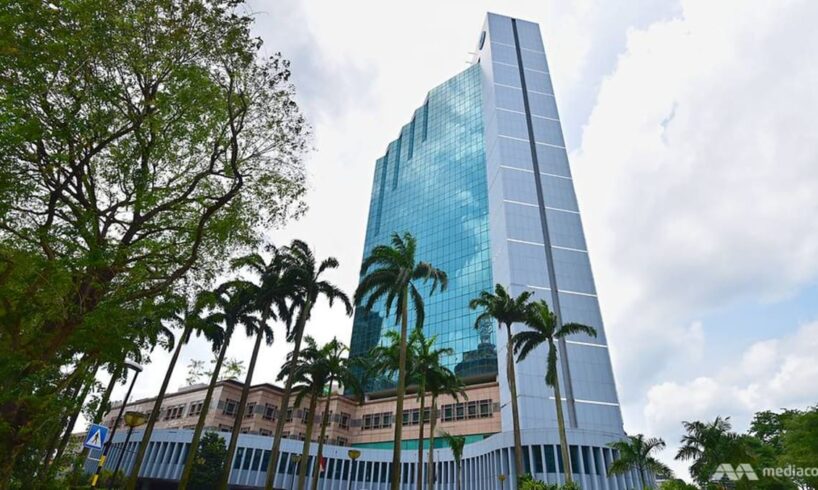
MARITIME AND PORT AUTHORITY
The AGO found lapses in contract management and procurement at MPA. In the audit, it was noted that there were inadequate checks on goods delivered or services provided.
AGO test-checked five tenders called by MPA from Jan 1, 2022 to Mar 31, 2024, with a total approved procurement value of S$104.86 million (US$81.8 million).
It found two instances of errors in the evaluation scoring of a tender for vessel management services. The tender was awarded to two tenderers.
AGO noted that one of the errors could have affected the award of the tender – it could have been given to another tenderer with a bid price that was S$2.43 million lower than the awarded price.
MPA used the Price-Quality Method in the evaluation of the tender. Under the PQM, price and quality criteria were assigned weightages and translated into quantitative scores during evaluation.
The error pertained to points awarded for an evaluation criterion on compliance with requirement specifications for vessel management services for patrol craft.
For this evaluation criterion, the successful tenderer submitted the certificates awarded to its subsidiary, and not itself. MPA accepted this submission.
“If the points had not been awarded to the tenderer, another tenderer would have obtained the highest score,” said the AGO.
MPA said in a statement that it has updated its evaluation protocols to “allow capabilities of entities within the tenderers’ group to be considered, provided these are clearly declared in the tender documents”.
The AGO also highlighted six operational service contracts in which payments were made without adequate checks to verify that services had been delivered as required.
“MPA has since reviewed and confirmed service delivery for each of the six contracts through logs and supporting records. MPA has also put in place measures to ensure proper checks and verification of supporting documentation are done before future payments are approved,” said MPA.
MINISTRY OF EDUCATION
For the audit of the Post-Secondary Education Fund, the AGO covered receipts and payments in its data analysis and test checks.
The AGO looked at the Post-Secondary Education Account (PSEA) withdrawal records for course fees and charges by training providers from Apr 1, 2021 to Mar 31, 2024.
The total amount of PSEA withdrawals for course fees and charges by all training providers was just over S$30 million during the audit period.
The AGO found lapses in the administration of PSEA withdrawals. There were inadequate verification checks on withdrawals by one of the three training providers.
It found 299 instances of multiple withdrawals – ranging from two to four times – for the same course, or withdrawal amounts exceeding the prescribed course fees.
There were also eight instances where a member had made withdrawals for eight courses by the training provider but had not enrolled in any of the courses.
These 307 instances led to unutilised PSEA withdrawals totalling S$116,200.
Unutilised PSEA money should be refunded to the accounts of members, but the training provider had held the money for as long as 2.8 years as of December 2024, even though it would have been aware of them from its records.
“AGO noted that MOE relied on checks by training providers and the members themselves to ensure that PSEA monies were used for approved purposes and any unutilised monies were refunded to the PSEAs,” it said.
MOE told AGO that it had a system of controls in place for the governance of PSEA withdrawals and refunds.
The ministry also told the AGO that the training provider has since refunded the unused amounts to the accounts in full.
In a separate statement, the ministry said the training provider has been warned.
Prior to the audit by the AGO, it has been progressively tightening the PSEA withdrawal process since 2022.
“For example, in 2023, the process was strengthened to only accept withdrawal requests made with Singpass authentication by the PSEA member. This prevents any potential forged or fraudulent withdrawal requests,” the ministry said.
MOE said that it also embarked on a pilot initiative in December 2023 to conduct an “in-depth audit of selected” training providers, focusing on providers’ withdrawal and refund processes. It said it intends to scale up this audit to all training providers.
The ministry will also be reviewing past transactions of all training providers over the past six years.
INSOLVENCY AND PUBLIC TRUSTEE’S OFFICE
For IPTO, AGO noted that money paid into the Companies Liquidation Account (CLA) by liquidators of companies undergoing compulsory winding up had been invested in fixed deposits.
However, not all liquidators had requested or given their consent for the money to be invested. Based on legal advice, such money cannot be invested if there was no request or consent given by the liquidator.
The Ministry of Law (MinLaw) told AGO that from April 2019 to November 2024, the total interest earned for these cases was estimated to be S$14.25 million.
The interest earned from investing the money had been credited to the Consolidated Fund.
MinLaw said in a statement that it takes the AGO’s observations seriously and has taken steps to address them.
It acknowledged that under existing rules, the money should have only been invested upon requests from liquidators.
“When no such requests were received, these monies should have remained in the CLA, which is maintained as a current account with a bank.
“However, MinLaw placed those monies in fixed deposits through the Accountant-General’s Department instead of leaving them in this current account earning lower interest.”
The ministry said there was no misuse of public funds and no losses arising from the fixed deposit investments, and no company undergoing compulsory liquidation was “financially disadvantaged arising from this”.
It added that it has “taken steps” to ensure that money will not be invested if the liquidators did not make such a request.
A new investment framework has been implemented to ensure the money will only be placed in fixed deposits only upon liquidators’ requests.





